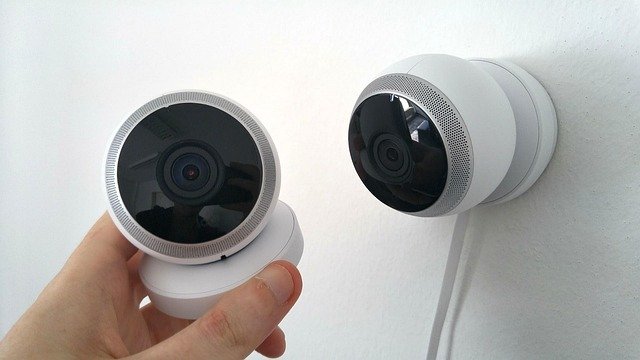Security Camera Systems: Complete Guide for Home Protection
Security camera systems provide a way to monitor and protect homes or businesses by recording activity and deterring potential threats. Choosing the right system involves considering factors like coverage area, resolution, storage options, and ease of use to ensure reliable and effective surveillance.

What Are the Best Home Security Camera Systems Overview Options?
Home security camera systems have transformed from basic recording devices to sophisticated smart home integrations. These systems typically include multiple cameras, a central hub or recording device, and mobile app connectivity for remote viewing. The most effective systems combine indoor and outdoor cameras with features like motion detection, night vision, and cloud storage capabilities.
Professional monitoring services often integrate with these camera systems, providing 24/7 surveillance and emergency response coordination. Many homeowners find that visible security cameras serve as powerful deterrents, while hidden cameras can capture evidence if incidents occur. The key is selecting a system that matches your property size, security concerns, and technical comfort level.
How Do Wireless Security Camera Systems Compare to Wired Options?
Wireless security camera systems have gained popularity due to their flexibility and easier installation process. These systems transmit video signals through Wi-Fi networks, eliminating the need for extensive cable runs throughout your property. Battery-powered wireless cameras can be placed virtually anywhere, making them ideal for monitoring remote areas like detached garages or garden sheds.
However, wireless systems do have considerations to keep in mind. They depend on strong Wi-Fi signals and may experience interference from other wireless devices. Battery-powered models require regular charging or battery replacement. Wired systems, while requiring more complex installation, offer consistent power and signal reliability. Many homeowners opt for hybrid approaches, using wired cameras for critical areas and wireless cameras for supplementary coverage.
What Security Camera System Features and Specifications Matter Most?
Video resolution stands as one of the most important specifications when evaluating security cameras. Modern systems offer 1080p HD as a standard, with many providing 4K ultra-high-definition recording for exceptional detail. Higher resolution becomes particularly valuable when trying to identify faces or license plates from recorded footage.
Night vision capabilities ensure your cameras remain effective in low-light conditions. Infrared sensors allow cameras to capture clear black-and-white footage in complete darkness, typically effective up to 30-100 feet depending on the model. Color night vision technology has also emerged, using ambient light and advanced sensors to maintain color footage even in challenging lighting conditions.
Motion detection with customizable zones helps reduce false alerts while ensuring important activity triggers recordings. Advanced systems incorporate artificial intelligence to distinguish between people, animals, and vehicles, providing more accurate notifications and reducing unnecessary alerts from moving branches or passing cars.
What Are the Available Security Camera Systems Options for Different Needs?
Indoor security cameras focus on monitoring interior spaces and typically feature compact designs that blend with home decor. These cameras often include two-way audio communication, allowing homeowners to speak with family members or deter intruders remotely. Pan-tilt-zoom functionality enables users to adjust camera angles and zoom in on specific areas through mobile apps.
Outdoor cameras require weatherproof construction and often include additional features like built-in sirens or spotlights. These cameras must withstand temperature extremes, rain, and UV exposure while maintaining clear video quality. Solar-powered options have become available for locations where running power cables proves challenging.
Doorbell cameras have created their own category, combining traditional doorbell functionality with security monitoring. These devices provide wide-angle views of front entrances, package delivery areas, and visitor identification capabilities. Many integrate with existing doorbell wiring for continuous power while offering smartphone notifications for all activity.
| Camera Type | Provider | Key Features | Cost Estimation |
|---|---|---|---|
| Wireless System (4 cameras) | Ring | 1080p HD, motion detection, cloud storage | $200-400 |
| Wired System (8 cameras) | Lorex | 4K resolution, night vision, local storage | $400-800 |
| Smart Indoor Camera | Wyze | Pan/tilt, two-way audio, person detection | $25-50 |
| Outdoor Wireless | Arlo | Weather-resistant, battery powered, AI detection | $100-300 per camera |
| Doorbell Camera | Nest | Wide-angle view, facial recognition, Smart alerts | $150-250 |
Prices, rates, or cost estimates mentioned in this article are based on the latest available information but may change over time. Independent research is advised before making financial decisions.
Choosing the Right System for Your Home
Selecting the appropriate security camera system depends on your specific security objectives, property layout, and budget considerations. Start by identifying the areas requiring monitoring, such as entry points, driveways, and valuable asset locations. Consider whether you prefer self-monitoring through mobile apps or professional monitoring services that provide emergency response coordination.
Integration capabilities with existing smart home systems can enhance overall security effectiveness. Many camera systems work seamlessly with smart locks, lighting systems, and home automation platforms, creating comprehensive security ecosystems. Cloud storage subscriptions provide off-site backup for recorded footage, while local storage options offer privacy and eliminate ongoing fees.
Modern security camera systems provide homeowners with powerful tools for protecting their properties and families. By understanding the available options, key features, and installation considerations, you can select a system that provides reliable security monitoring tailored to your specific needs. Whether choosing wireless flexibility or wired reliability, today’s camera technologies offer unprecedented clarity and smart features that make home security more accessible and effective than ever before.




